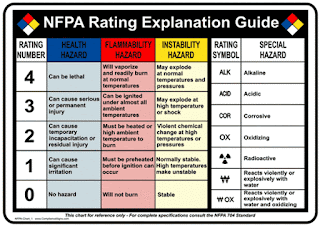5 Guidelines On How To Safely Use Cleaning Products
Cleaning Chemicals are an essential in every household but it poses great danger and health hazard when used improperly.Cleaning solutions especially those that contain chlorine and ammonia can cause not-so-wonderful damage to your possessions and to yourself. Many cleaning solutions can burn your skin and, if swallowed in sufficient quantity, prove fatal. According to research, there are 28,000 cases of accidents caused by household chemicals each year. Children under five years of age are most susceptible to accidental
poisonings caused by negligence in chemical safekeeping.
The precautions you need to take to keep yourself and your possessions safe from cleaners are
mainly simple guidelines. When working with chemicals follow these tips:
1. Always read the label and accurately follow dilution and safety instructions.
Always be vigilant in reading instructions and labels of chemical product because it proactively educates
users on how to properly store and use them.
2. Open windows to ventilate where you are working. Some of the chemicals stick to the lungs
especially during prolonged exposure that may cause suffocation.
3. Wear gloves and eye protection if advised. Protect your clothes and surfaces from splashes.
Chemicals may react differently in your skin. It may cause burns, irritations and rashes so it is
best to always use protective gloves while using them.
4. Oven and drain cleaners are the most powerful cleaners. Take extra care when using these
products. Always ensure to store them in places where they are not easily accessible to.
5. Do not mix cleaning products. Combining chemicals won’t make a super-cleaner and can
produce toxic gases. If one cleaner doesn’t produce the cleaning or stain removal power you
hoped for rinse away (all traces of the first product before beginning again with another cleaning agent).
Cleaning chemicals can be your best friend or it can be your worst enemy. Precaution is a
must to avoid accidents. It is best that employees, household help or business owner undergo
seminars and trainings in properly handling cleaning tools and equipment. BSC Training offers
various training modules than can be beneficial for both business and household owners. Find
the training and seminar that will best meet you and your business needs.

